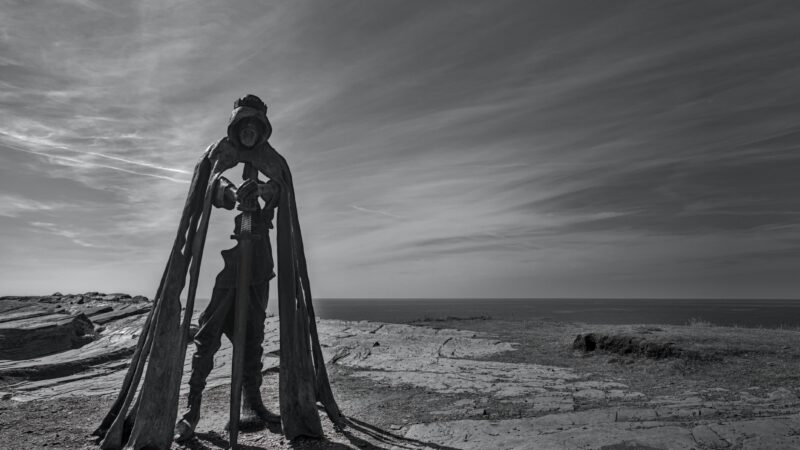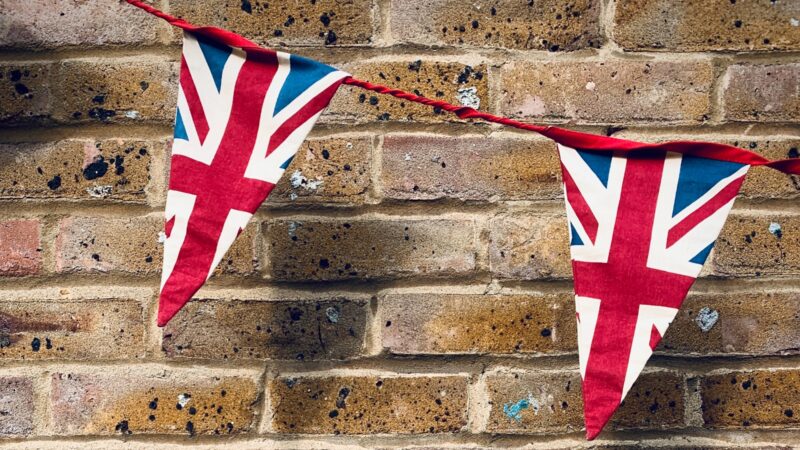When British biologist Charles Darwin (1809 – 1882) researched the birds and insects living on tropical islands in the 19th century, he observed that many species had gradually abandoned their wings. Insects were equipped with small legs and feet, but no flying apparatus.
The reason they were without wings was because their innate survival instinct would kill them. If the tiny, feather-light insect were to take off and – through a tandem of ocean winds and its curiosity – land on the sea, in all probability it was never to return home again. Nature has preserved these bugs from the dangers of this instinctive trait, of their deceptive curiosity. She has deprived these little critters of the weapons to accidentally, and in all their enthusiasm, kill themselves. But why didn’t nature do the same to us? Why did we get wings, with all the resulting consequences? More than a comparison, this is a metaphor. A metaphor that bespeaks the hubris and curiosity of human beings. It is also a metaphor about censorship and ill-considered decisions, but we’ll come to that at the end. Luckily this analogy simultaneously offers an antidote. An antidote that comes in the shape of conservatism, and some apolitical common sense.
Curiosity
Anyone who studies human behavior and its history notices that people have a fundamental fear of standing still, both physically, culturally and intellectually. As humans we – ab initio – have a reflex to think linearly, in past, present and future. This typical forward-thinking stems from the fundamental curiosity that characterises human beings. With necessity and inevitability, we search for a human nature and the principles that can construct our being. We do not only ask questions, but we also live the questions – after the spirit of Rilke. There is a constant desire to seek them out, study them, weigh them and above all conclude them. We have been doing this since the Homo sapiens developed self-awareness – years and years ago. This curiosity makes it difficult and almost unnatural for man to resign himself to his position, stand still and appreciate what he already holds.
From this curiosity, then, stems the illusion that as we progress more and more, we will eventually be able to grasp something better. Or in other words, we fly off to the perfect island where everything will be better than on the dreary island we were born on. An island-insect, if endowed with thoughts and desires similar to ours, would want to fly to another island, and might even try to do so instinctively even without these thoughts and desires. We, unlike these insects, are not held back by any natural limitations. We have managed through reason, tools and technology to make our way to any other island on the globe. This curiosity and ingenuity, however, holds significant challenges and perils for a society. The few people who seem to notice these risks are the conservatives, and they are the only ones who – often at the expense of their own image – can offer some counterweight to these innate sentiments.
Conservation
Conservatism is – as the late Sir Roger Scruton (1944 – 2020) so beautifully observed – the philosophy of conservation. It is the philosophy of preservation, to protect what is good, to be grateful for what we have and to be critical of the delusion of the day. In other words, it is a philosophy born of love and appreciation. Love for a shared culture, land, language and country and appreciation for the work and sacrifices of the people who created such a place. Perhaps Austro-Bohemian composer Gustav Mahler’s comment encapsulates this very idea most succinctly, and deserves its mention: “Tradition is not the worship of ashes, but the preservation of fire.”
As a philosophy she seems – prima facie – rather stately and dusty, but not particularly bellicose or harmful. Yet today the majority of the so-called intellectuals seem to think of conservatism as some dubious ideology, something for old white men or a thing from a different time.
I stop writing for a moment, sip at my coffee and and wipe the ashes off my trousers. I think to myself: is this really what being conservative means? I am 24, well of this age, and do not – yet – feel like an “old white man”, however that should feel. But why do the people around me, my friends, fellow students, politicians, journalists, teachers, writers and philosophers seem so numb to these sentiments? Why the bad connotation of conserving something that is good?
After all, we conserve all sorts of things. In museums and archives, experts work every day to preserve ancient artifacts, statues, rugs, coins, drawings or paintings, to prevent them from being lost or broken, from being consumed by microscopic bugs, moisture or adverse temperatures. We value these objects. They are worth our resources, time and energy and deserve to be passed on to the next generation who will – hopefully – develop the same love for them. Conservatives who delicately, scrupulously and meticulously handle the fragile ideals on which our culture was built, are somewhat comparable to them.
However, what can be argued is that this is a skewed comparison because the conserved object is fundamentally distinct in both situations. Many people would argue that, unlike museum objects, the conservative is not trying to protect something that is worth protecting. Indeed, the opposite is often claimed, the conservative wants to conserve something that is inherently bad. Conservatism wants to perpetuate old patterns of power, inequality, hatred and oppression, preserving something that should have been destroyed and forgotten long ago. Let us not fall into this trap and assume that there are – still – a plethora of things worth preserving and cherishing.
The Open Sea
To ‘island-insects’, flying was a useful – and presumably quite ‘fun’ – quality that was being eliminated to ensure their survival. Thus, the creatures also parted with certain opportunities that existence offered them. They no longer enjoyed the freedom enjoyed by their ancestors, with the wind in their tails and their heads in the clouds, but it made something else possible, namely their survival.
The survival of a culture is less visible than the survival of an individual, a football coach in difficult waters or an Iberian bull-fighting for its life in a Madrid arena. It does not always perish in revolutions or iconoclasts, but in a quietly growing disinclination to conservation and stagnation. One only has to look at publishing house Puffin – censoring dozens of words in Roald Dahl stories last year – to see the pitfalls of such beliefs. Collectively we say: let’s make tabula rasa and finally move forward as a society”. In that same capacity however, we might leave behind something that may be more fragile and valuable than we hold it to be.
An old Russian adage can probably convey my message more adequately than my own pen can: you are born where you are needed, and that is on your own island. Let us not get lost in the endless opportunities that existence offers us, but celebrate its inherent beauty. Let us not fly too close to the sun or too far from our island, but take care of what we have been given, lest evolution eventually take away our wings too. For if we rush out to sea, we may realise that this island was not so bad after all, and will come to the painful conclusion that, so deep in the open ocean, this place may lie forever behind us.



